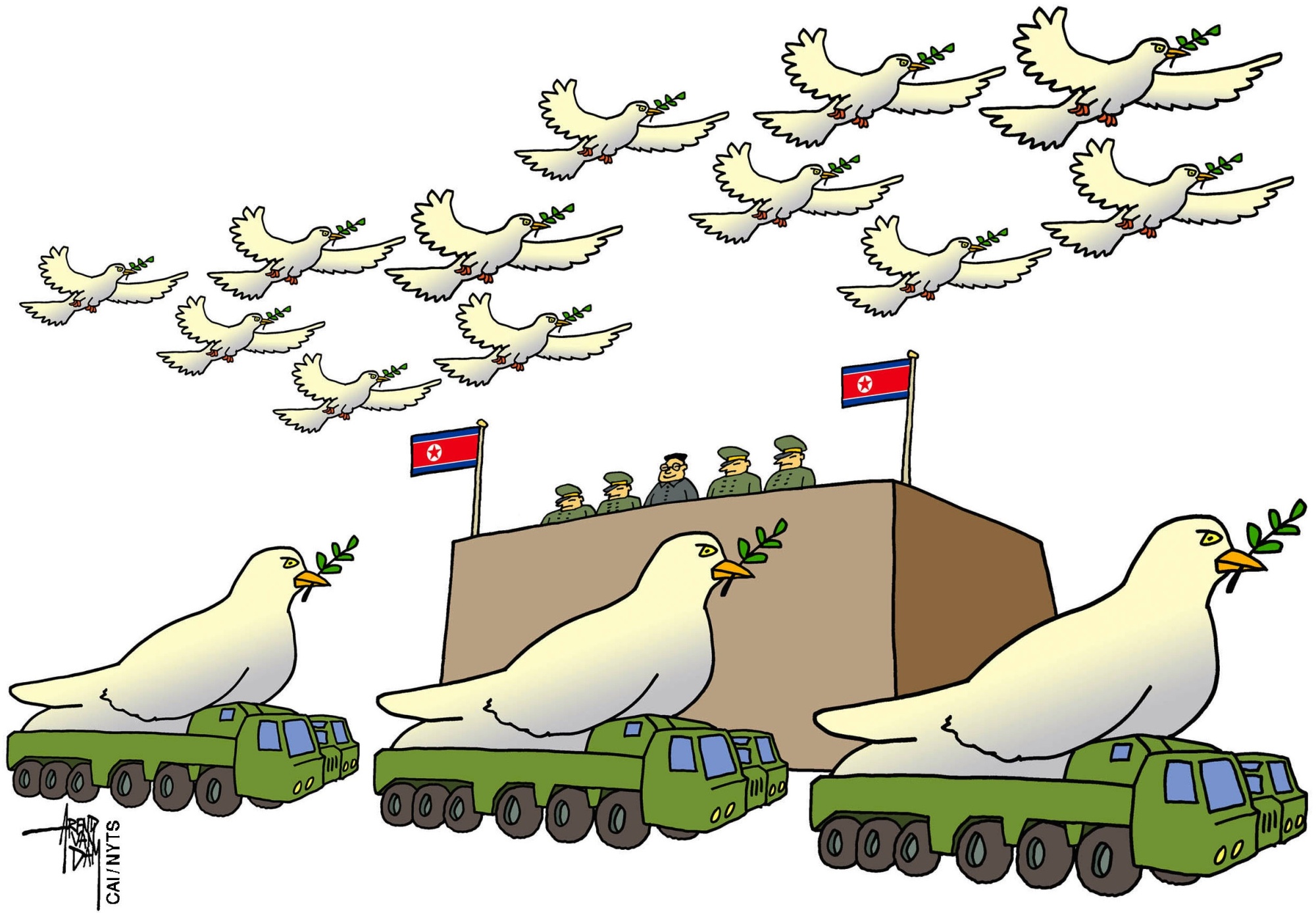The latest meeting between Prime Minister Shinzo Abe and U.S. President Donald Trump was a sobering moment for Japan in many ways. In particular, last week's summit has made one thing stunningly clear: It is not in a position to play a major role as the future of the Korean Peninsula is being determined by the United States, China and the two Koreas.
The developments since the stunning announcement on March 8 about the planned summit between Trump and North Korean leader Kim Jong Un — Kim's surprise trip to Beijing for a meeting with Chinese President Xi Jinping; U.S. Secretary of State-designate Mike Pompeo's visit to Pyongyang for direct talks with Kim; and North Korea's announcement of its intention to suspend nuclear and missile tests as well as shutting down its nuclear facility — strongly suggest that the discussion both in the upcoming summit between Kim and South Korean President Moon Jae-in on Friday and the Trump-Kim summit will likely take place with an eye toward formally ending the Korean War when North Korea's denuclearization is complete.
Not being a party to the existing cease-fire agreement for the Korean War, Japan is structurally handicapped to influence this process directly.


















With your current subscription plan you can comment on stories. However, before writing your first comment, please create a display name in the Profile section of your subscriber account page.